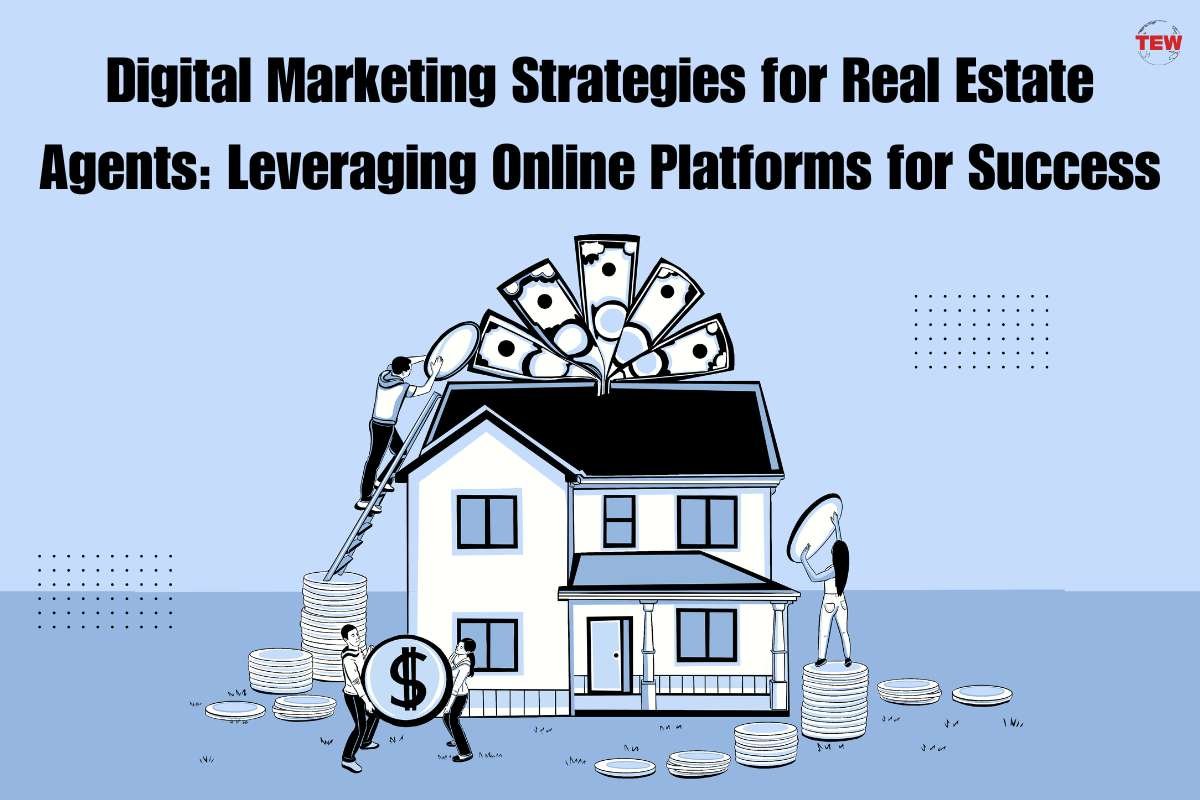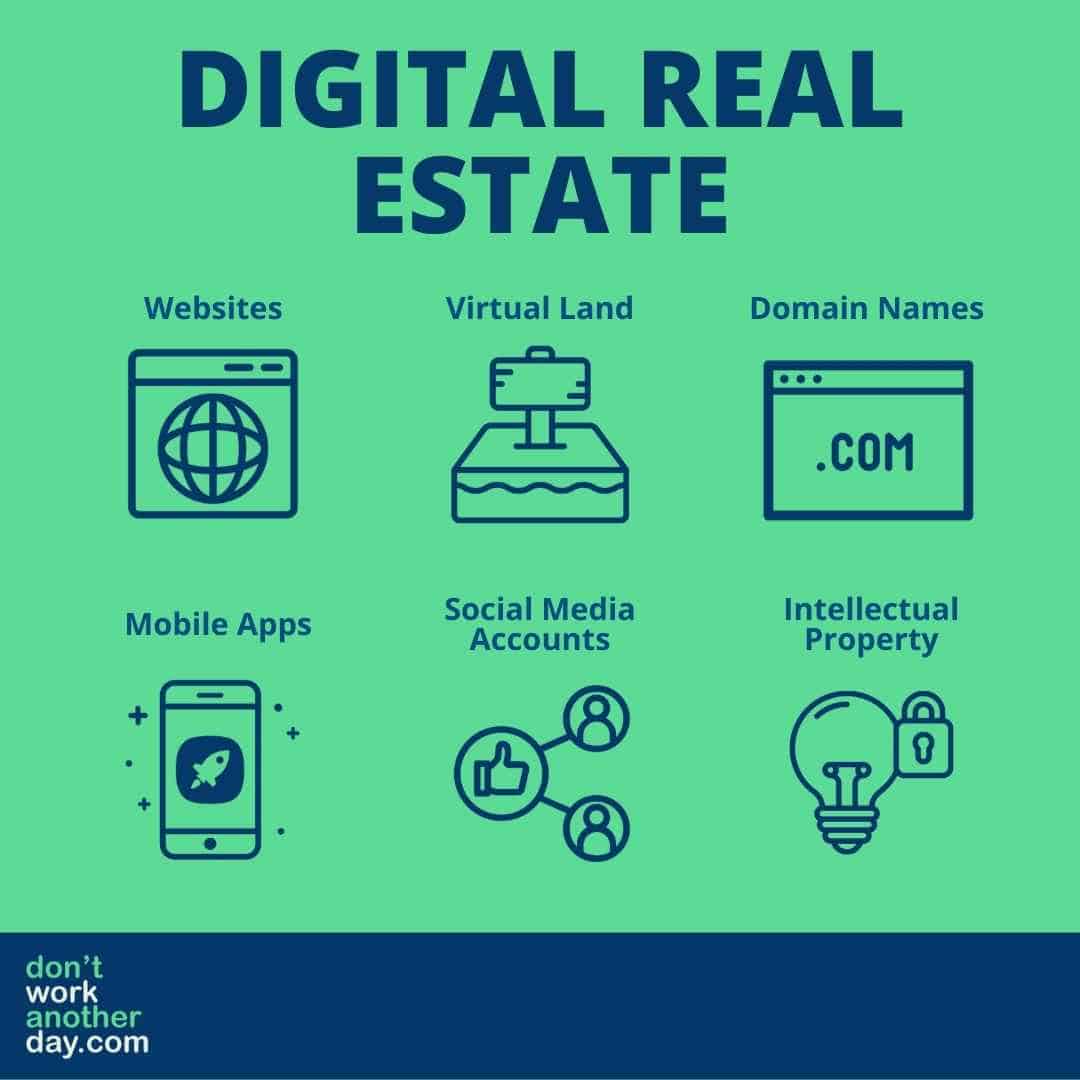Unlocking the Secrets of Digital Real Estate Investing
Digital real estate investing has emerged as a lucrative opportunity for individuals seeking to generate passive income and build wealth online. Unlike traditional real estate investing, which requires significant capital and physical presence, digital real estate investing offers a more accessible and flexible way to invest in online properties. For beginners, understanding the concept of digital real estate and its potential is crucial for making informed investment decisions.
Digital real estate refers to online properties, such as websites, blogs, and social media platforms, that can be bought, sold, and rented. These online properties can generate revenue through various monetization strategies, including advertising, affiliate marketing, and sponsored content. With the rise of the digital economy, the demand for online properties has increased, making digital real estate investing an attractive option for those looking to diversify their investment portfolios.
One of the primary benefits of digital real estate investing is its lower startup costs compared to traditional real estate investing. With digital real estate, investors can start with a minimal investment and scale their portfolio as they gain experience and confidence. Additionally, digital real estate investing offers greater flexibility, as online properties can be managed and maintained remotely, allowing investors to work from anywhere and at any time.
For beginners, getting started with digital real estate investing requires a solid understanding of the online landscape and the various opportunities available. This includes researching different types of online properties, understanding the various monetization strategies, and learning how to evaluate the potential of a website or online property. By taking the time to educate themselves and develop a well-informed investment strategy, beginners can set themselves up for success in the world of digital real estate investing.
As the digital economy continues to evolve, the potential for digital real estate investing to generate long-term wealth is significant. With the right knowledge, skills, and strategy, investors can build a lucrative online empire and achieve financial freedom. Whether you’re a seasoned investor or just starting out, digital real estate investing offers a unique opportunity to diversify your portfolio and tap into the vast potential of the online market.
How to Get Started with Digital Real Estate Investing
For beginners, getting started with digital real estate investing can seem daunting, but with a clear understanding of the process, it can be a straightforward and rewarding experience. The first step is to choose a niche, which is a specific area of interest or expertise that will serve as the foundation for your digital real estate empire. This could be anything from health and wellness to finance and technology.
Once you have selected a niche, the next step is to select a platform, which will serve as the foundation for your online presence. This could be a website, blog, or social media platform, depending on your goals and target audience. For example, if you are targeting a younger demographic, you may want to consider using TikTok or Instagram, while a more professional audience may be better suited to LinkedIn or Twitter.
After selecting a platform, the next step is to set up your website or online presence. This will involve registering a domain name, selecting a web hosting service, and designing a website that is visually appealing and easy to navigate. For beginners, it may be helpful to use a website builder such as Wix or Squarespace, which offer drag-and-drop tools and pre-designed templates.
In addition to setting up your website, you will also need to create high-quality content that will attract and engage your target audience. This could include blog posts, videos, podcasts, or social media posts, depending on your platform and niche. The key is to create content that is informative, entertaining, and relevant to your audience, and to consistently post new content to keep them engaged.
Finally, it’s essential to understand the importance of search engine optimization (SEO) in digital real estate investing. SEO refers to the process of optimizing your website and content to rank higher in search engine results pages (SERPs), which can drive more traffic and revenue to your online presence. This can be achieved through keyword research, link building, and content optimization, among other strategies.
By following these steps, beginners can get started with digital real estate investing and set themselves up for success in the online market. Remember to stay focused, be patient, and continually educate yourself on the latest trends and strategies in digital real estate investing.
The Importance of Domain Authority and Website Valuation
In digital real estate investing, domain authority and website valuation are crucial factors to consider when evaluating the potential of a website or online property. Domain authority refers to the credibility and trustworthiness of a website, as measured by search engines such as Google. A high domain authority score indicates that a website is well-established, reputable, and worthy of ranking higher in search engine results pages (SERPs).
Website valuation, on the other hand, refers to the process of determining the monetary value of a website or online property. This can be based on various factors, such as the website’s traffic, revenue, and growth potential. In digital real estate investing, website valuation is essential for determining the potential return on investment (ROI) of a website or online property.
To evaluate the potential of a website or online property, digital real estate investors can use various tools and metrics, such as Moz’s Domain Authority score, Ahrefs’ Domain Rating, and SEMrush’s Authority Score. These tools provide a comprehensive analysis of a website’s credibility, trustworthiness, and ranking potential.
In addition to using these tools, digital real estate investors can also consider other factors, such as the website’s content quality, user experience, and technical performance. A well-designed website with high-quality content, a user-friendly interface, and fast loading speeds is more likely to attract and engage visitors, and ultimately, generate revenue.
To increase the value of a website or online property, digital real estate investors can implement various strategies, such as content optimization, link building, and social media marketing. By improving the website’s credibility, trustworthiness, and ranking potential, investors can increase its value and potential ROI.
For digital real estate for beginners, understanding the importance of domain authority and website valuation is crucial for making informed investment decisions. By evaluating the potential of a website or online property using these metrics, investors can identify opportunities for growth and increase their chances of success in the digital real estate market.
Monetizing Your Digital Real Estate: Strategies for Success
Once you have established a strong online presence and built a valuable digital real estate portfolio, it’s time to monetize your assets. There are several strategies for generating revenue from digital real estate, including advertising, affiliate marketing, and sponsored content. In this section, we will explore each of these strategies in more detail and provide examples of successful digital real estate investors who have implemented them.
Advertising is one of the most common monetization strategies for digital real estate. This can include display ads, such as banner ads and pop-ups, as well as native ads, such as sponsored content and product placements. To be successful with advertising, it’s essential to have a large and engaged audience, as well as a strong understanding of your target market and their needs.
Affiliate marketing is another popular monetization strategy for digital real estate. This involves promoting other people’s products or services and earning a commission on any sales generated through your unique referral link. To be successful with affiliate marketing, it’s essential to choose products or services that are relevant to your audience and to have a strong understanding of how to promote them effectively.
Sponsored content is a third monetization strategy for digital real estate. This involves creating content that is sponsored by a brand or business, such as a blog post or video. To be successful with sponsored content, it’s essential to have a strong understanding of your audience and their needs, as well as a strong relationship with the brand or business sponsoring the content.
For digital real estate for beginners, it’s essential to start with a solid understanding of these monetization strategies and to experiment with different approaches to find what works best for your portfolio. By diversifying your revenue streams and creating multiple sources of income, you can build a more sustainable and profitable digital real estate empire.
Some successful digital real estate investors have implemented these strategies with great success. For example, Pat Flynn, a well-known online entrepreneur, has built a lucrative digital real estate empire through affiliate marketing and sponsored content. Similarly, Michelle Schroeder-Gardner, a personal finance blogger, has built a successful digital real estate portfolio through advertising and affiliate marketing.
By following in the footsteps of these successful digital real estate investors and implementing these monetization strategies, you can build a profitable and sustainable digital real estate empire that generates long-term wealth.
Managing and Maintaining Your Digital Real Estate Portfolio
Once you have established a digital real estate portfolio, it’s essential to manage and maintain it effectively to ensure long-term success. This includes creating high-quality content, optimizing your website for search engines, and tracking your analytics to understand your audience and their behavior.
Content creation is a critical component of managing and maintaining a digital real estate portfolio. This includes creating high-quality, engaging, and informative content that resonates with your target audience. To be successful, it’s essential to have a content strategy in place that aligns with your business goals and objectives.
SEO optimization is another crucial aspect of managing and maintaining a digital real estate portfolio. This includes optimizing your website and content for search engines to improve your visibility and ranking. To be successful, it’s essential to have a solid understanding of SEO principles and best practices.
Analytics tracking is also essential for managing and maintaining a digital real estate portfolio. This includes tracking your website traffic, engagement, and conversion rates to understand your audience and their behavior. To be successful, it’s essential to have a solid understanding of analytics tools and how to interpret the data.
For digital real estate for beginners, it’s essential to start with a solid understanding of these concepts and to implement them effectively. By creating high-quality content, optimizing your website for search engines, and tracking your analytics, you can build a successful digital real estate portfolio that generates long-term wealth.
Some successful digital real estate investors have implemented these strategies with great success. For example, Neil Patel, a well-known online entrepreneur, has built a lucrative digital real estate empire through effective content creation and SEO optimization. Similarly, Mari Smith, a leading expert on Facebook marketing, has built a successful digital real estate portfolio through effective analytics tracking and optimization.
By following in the footsteps of these successful digital real estate investors and implementing these strategies, you can build a successful digital real estate portfolio that generates long-term wealth.
Common Mistakes to Avoid in Digital Real Estate Investing
As a digital real estate investor, it’s essential to be aware of the common mistakes that beginners make in this field. By avoiding these pitfalls, you can set yourself up for success and build a lucrative online empire. In this section, we’ll explore some of the most common mistakes to avoid in digital real estate investing.
Poor niche selection is one of the most common mistakes that beginners make in digital real estate investing. This can lead to a lack of focus and direction, making it difficult to attract and engage with your target audience. To avoid this mistake, it’s essential to choose a niche that you’re passionate about and have a deep understanding of.
Inadequate marketing is another common mistake that beginners make in digital real estate investing. This can lead to a lack of visibility and traffic, making it difficult to generate revenue and build a successful online business. To avoid this mistake, it’s essential to develop a solid marketing strategy that includes social media, content marketing, and paid advertising.
Insufficient maintenance is another common mistake that beginners make in digital real estate investing. This can lead to a decline in website traffic and revenue, making it difficult to sustain a successful online business. To avoid this mistake, it’s essential to regularly update and maintain your website, including fresh content, technical optimization, and analytics tracking.
For digital real estate for beginners, it’s essential to be aware of these common mistakes and take steps to avoid them. By choosing a profitable niche, developing a solid marketing strategy, and regularly maintaining your website, you can set yourself up for success and build a lucrative online empire.
Some successful digital real estate investors have learned from these mistakes and have developed strategies to avoid them. For example, Chris Guillebeau, a well-known online entrepreneur, has emphasized the importance of choosing a profitable niche and developing a solid marketing strategy. Similarly, Pat Flynn, a successful digital real estate investor, has highlighted the importance of regularly maintaining and updating your website to ensure long-term success.
By following in the footsteps of these successful digital real estate investors and avoiding these common mistakes, you can build a successful online business and achieve your financial goals.
Scaling Your Digital Real Estate Business for Long-Term Success
As a digital real estate investor, scaling your business is crucial for achieving long-term success. Scaling involves increasing your online presence, revenue, and profitability while maintaining a strong foundation. In this section, we’ll explore strategies for scaling a digital real estate business, including outsourcing, automation, and strategic partnerships.
Outsourcing is a key strategy for scaling a digital real estate business. By outsourcing tasks such as content creation, social media management, and website maintenance, you can free up time and resources to focus on high-level tasks such as strategy and growth. When outsourcing, it’s essential to choose reliable and skilled service providers who can deliver high-quality work.
Automation is another strategy for scaling a digital real estate business. By automating tasks such as email marketing, lead generation, and customer service, you can increase efficiency and reduce costs. Automation tools such as Zapier, IFTTT, and Mailchimp can help streamline your business operations and improve productivity.
Strategic partnerships are also essential for scaling a digital real estate business. By partnering with other businesses or influencers in your niche, you can increase your online presence, reach new audiences, and generate more revenue. When forming partnerships, it’s essential to choose partners who share your values and goals and can help you achieve your objectives.
For digital real estate for beginners, scaling a business can seem daunting, but with the right strategies and mindset, it’s achievable. By outsourcing, automating, and forming strategic partnerships, you can increase your online presence, revenue, and profitability and achieve long-term success.
Some successful digital real estate investors have scaled their businesses using these strategies. For example, Grant Cardone, a well-known online entrepreneur, has built a lucrative digital real estate empire through outsourcing, automation, and strategic partnerships. Similarly, Ryan Levesque, a successful digital real estate investor, has scaled his business using automation tools and strategic partnerships.
By following in the footsteps of these successful digital real estate investors and implementing these strategies, you can scale your business and achieve long-term success in the digital real estate market.
Conclusion: Building a Prosperous Digital Real Estate Empire
In conclusion, building a prosperous digital real estate empire requires a solid understanding of the concepts and strategies outlined in this article. From choosing a niche and selecting a platform to monetizing and scaling your business, each step is crucial for achieving long-term success.
For digital real estate for beginners, it’s essential to start with a solid foundation and build from there. By following the steps outlined in this article and avoiding common mistakes, you can set yourself up for success and build a lucrative online empire.
The potential of digital real estate investing is vast, and with the right mindset and strategies, you can generate long-term wealth and achieve financial freedom. Whether you’re a seasoned investor or just starting out, digital real estate investing offers a unique opportunity to build a prosperous online empire.
As you embark on your digital real estate journey, remember to stay focused, adapt to changes in the market, and continuously learn and improve. With persistence and dedication, you can build a prosperous digital real estate empire that generates long-term wealth and financial freedom.
In the ever-evolving digital landscape, it’s essential to stay ahead of the curve and continuously adapt to changes in the market. By staying informed and up-to-date on the latest trends and strategies, you can ensure that your digital real estate empire remains prosperous and continues to generate long-term wealth.
Finally, remember that building a prosperous digital real estate empire takes time, effort, and dedication. But with the right mindset and strategies, you can achieve long-term success and financial freedom. So, start building your digital real estate empire today and watch your wealth and prosperity grow.







